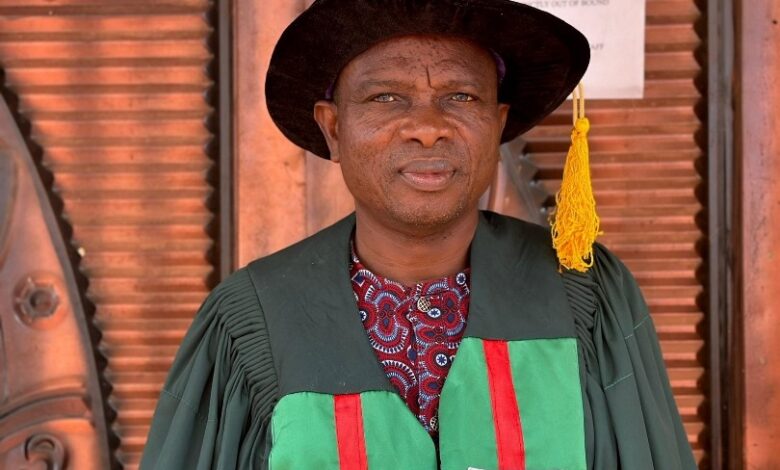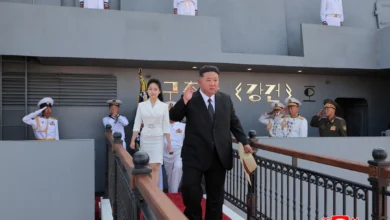UNN’s Prof Ezema: Symbol of Nigeria’s Moment of Intellectual Reckoning

Aliko Dangote, the founder and chairman of the Dangote Group, is frequently celebrated as a symbol of African entrepreneurship and industrial growth.
As the richest Black man in the world, Dangote’s story is often cited as proof that African economies can produce billionaires who rival their Western and Asian counterparts.
However, beyond the polished success story lies a troubling contradiction: the same company lauded as a Nigerian success is also accused of perpetuating systemic inequality, foreign labor favoritism, and the suppression of basic workers’ rights.
This report critically examines the operations of the Dangote Group, particularly the ways in which it has disadvantaged Nigerian workers while disproportionately empowering and enriching Indian expatriates.
Through extensive government support, foreign exchange (FX) advantages, and tax breaks, Dangote has been given an economic playing field heavily tilted in his favor. Yet, the promised benefits to Nigerians — jobs, development, and opportunity — have largely failed to materialize.
Instead, what has emerged is a model of economic exclusion: Nigerian workers are underpaid, unprotected, and voiceless, while foreign nationals — especially Indian workers — dominate managerial and technical roles, enjoying luxurious benefits and near-total control of plant operations. If this trend continues unchecked, it not only undermines national development but also erodes the dignity and future of the Nigerian workforce.
The success of the Dangote Group cannot be fully understood without recognizing its long-standing preferential access to government resources. From the early days of his business ventures, Aliko Dangote has been a consistent beneficiary of state-sponsored support programs. These include exclusive import licenses, customs waivers, land grants, access to below-market interest loans, and most notably, preferential foreign exchange allocations from the Central Bank of Nigeria.
While some may argue that supporting local industry leaders is part of economic development strategy, the scale and consistency of government patronage extended to Dangote is extraordinary. For instance, when other businesses struggle to access scarce foreign currency, Dangote is often granted large sums at favorable rates. In some cases, this FX is reportedly round-tripped — exchanged at official rates and then sold on the black market for massive profit.
This system distorts the market, harms local competition, and entrenches a monopoly that squeezes out other Nigerian entrepreneurs. It also raises a fundamental question: why does a private businessman enjoy such sweeping economic privileges without being held accountable for the outcomes promised in return?
The justification for such extensive support to the Dangote Group has always been rooted in promises of national development — especially job creation and industrial self-sufficiency. Yet, despite decades of government backing, the outcomes have consistently fallen short.
Take, for example, the Dangote Cement factories in Obajana, Ibese, and Gboko. These projects received enormous land concessions and infrastructure support from federal and state governments, with the expectation that they would employ thousands of Nigerians. While they did hire locally, most of the strategic, technical, and managerial roles were immediately filled by Indian expatriates — many of whom lacked any specialization that could not be found within Nigeria’s educated workforce.
Instead of developing Nigerian talent, the Dangote Group built an internal structure that favored foreign dominance at the expense of local empowerment. The same pattern is seen in the newly established Dangote Refinery — lauded as a historic project for energy independence, but one that already shows signs of the same labor exclusion and foreign preference.
In effect, Nigerians are told to wait while their own labor and resources are used to enrich a privileged Indian masters, thanks to Aliko Dangote.
A consistent and deeply troubling feature of Dangote Group’s operations is the dominance of Indian nationals within its workforce. Whether in cement production, sugar refining, or petrochemicals, Indian expatriates — many recruited through networks tied to Dangote’s Vice President, Devakumar V.G. Edwin — occupy roles ranging from plant supervisors to operations managers, and even technical maintenance staff.
It is not unusual to find Indian nationals performing tasks for which Nigerian workers are already trained and available. Worse still, Nigerians are often made to work under these foreign supervisors who treat them with open disdain and disregard. Reports from several Dangote sites describe situations where Nigerians are shouted at, humiliated, or even physically threatened by Indian managers — with no recourse or complaint system in place.
This is a clear violation of the principle of national sovereignty and self-respect. In no Indian-owned company operating in India would Nigerians be allowed to dominate in such numbers and treat locals as inferiors. That this is allowed — even enabled — in Nigeria is a shameful indictment of weak regulatory oversight and leadership complicity and to think the man whose name is tied to all of this does not know or knows and choses to look the other way while Edwin and his cohorts run rough and treat Nigerians as dirts in their country.
One of the most glaring injustices within the Dangote Group is the wage disparity between Nigerian and Indian workers. While many Nigerians earn as little as ₦80,000 to ₦150,000 per month, Indian workers in equivalent or even lower-skilled roles reportedly earn $3,000 to $5,000 per month, in foreign currency.
In addition to these massive salary differences, Indian workers receive a plethora of benefits denied to their Nigerian counterparts.
These include:
- Free housing with full utilities (electricity, water, satellite TV)
- Free transportation to and from work
- Free feeding or generous food allowances
- Two all-expenses-paid return trips to India each year
- Domestic help (maids, drivers), often paid for by the company
- Security details as Nigerian Police or the Nigerian Civil Defence Corp assigned to every Indian national.
Meanwhile, Nigerian workers receive little more than their modest salaries. They pay for their accommodation, security, transportation, food, and in many cases, their safety gear or uniforms for work.
The inequality is not just economic — it’s psychological. It creates a workplace culture where Nigerians feel like second-class citizens in their own land.
This is something Dangote can not pretend not to know about or not to have heard about, even the federal government is very complacent in all of these abuses.
Any attempt by Nigerian workers to push back against these conditions — whether through labor unions or informal collective action — is swiftly and harshly punished.
Several former workers at the Obajana Cement Plant and Dangote Sugar Refinery report being terminated for joining WhatsApp groups suspected of discussing union activity.
The Dangote Group has no tolerance for unionism. Workers are regularly warned that participation in any labor agitation will lead to immediate dismissal.
This not only violates Nigerian labor laws but also strips workers of their fundamental right to organize and advocate for fair treatment.
This anti-union stance is driven largely by fear: if workers were allowed to speak freely or organize collectively, many of the abusive practices within the company would be exposed.
Thus, Dangote’s Indian-led management maintains control through a system of fear, surveillance, and heavy-handed suppression.
Beyond labor abuse, there is a serious economic crime happening behind the scenes: foreign exchange fraud via inflated expatriate salaries.
According to multiple insider reports, the Dangote Group declares high dollar salaries for its Indian staff — sometimes as high as $5,000 per month per person — in order to access foreign exchange from the Central Bank.
However, the expatriates only receive a portion of this amount (sometimes around $2,000), while the rest is pocketed by intermediaries, managers, or remitted to shadow accounts in India.
The federal government cannot invest so much only for Mr Edwin and his Indian cronies to be sucking the system dry with such impunity while Nigerians watch so helplessly. I say it is time for truth to be told, time for some questions to be asked of Dangote.
This practice not only exploits the workers themselves but also drains Nigeria’s already scarce FX reserves, enriching a few insiders while starving legitimate businesses of necessary currency for importation or growth.
This is a national economic issue — and one that should trigger urgent investigation by the EFCC, the CBN, and other relevant authorities.
Nigerians MUST not take this abuses to our economy any longer just to appease the “Nigerian Golden Boy” who has handed our economy to Indians to pillage, all this to the detriment of the real owners of the economy.
What does it say about Nigeria that one of its most celebrated business empires treats Nigerians as expendable labor while uplifting foreign workers as masters?
The economic model operated by Dangote is not sustainable. It rewards rent-seeking, suppresses innovation, and demoralizes the local workforce.
Worse still, it creates a precedent where other businesses may feel empowered to import labor, evade taxes, and exploit Nigerian workers — as long as they have political protection like Dangote has always enjoyed all his business life.
If Nigeria continues to allow this level of exploitation by one of its own, it sends a message to the world: Nigeria is open for abuse, not just for business. No other country in the world would allow for this level of pillaging and of abuse of her economy and her workforce.
Successive Nigerian governments have either turned a blind eye or actively supported the Dangote Group’s practices. Whether due to political connections, campaign financing, or economic dependence, there is a clear failure of regulation, oversight, and justice.
Institutions like the Ministry of Labor, Immigration, Customs, and the Central Bank must be held accountable for enabling this model of economic apartheid.
The Nigerian Immigration Service must explain how thousands of low-skilled Indian workers received work permits while Nigerians with equivalent skills were ignored. Any wonder why our young men and women are risking everything and fleeing the country for “greener-pastures” while Indians are taking their places.
The time for silence is over. Government complicity must end, and accountability must begin.
Aliko Dangote may be the richest Black man in the world, but his wealth must not come at the cost of Nigeria’s dignity, workers, and future. The Dangote Group’s current practices represent a betrayal of national trust, a distortion of economic justice, and a disgrace to labor dignity. It is time for Dangote to rise up and right all these many wrongs, our collective dignity is tied to that of the weakest amongst us Nigerians not your Indian guests.
MS-High Chief Christopher I. D. Wenegieme, Aurora, Colorado USA.
Post Views: 99




